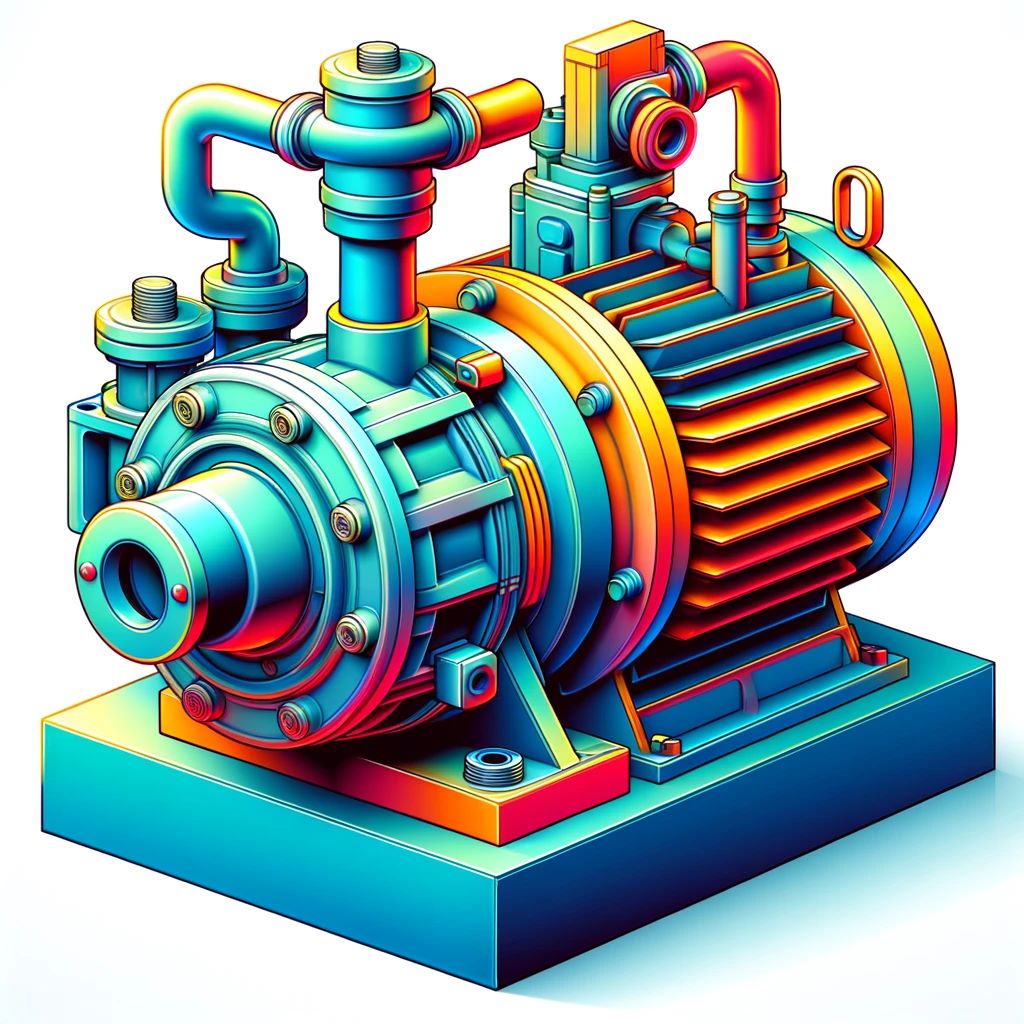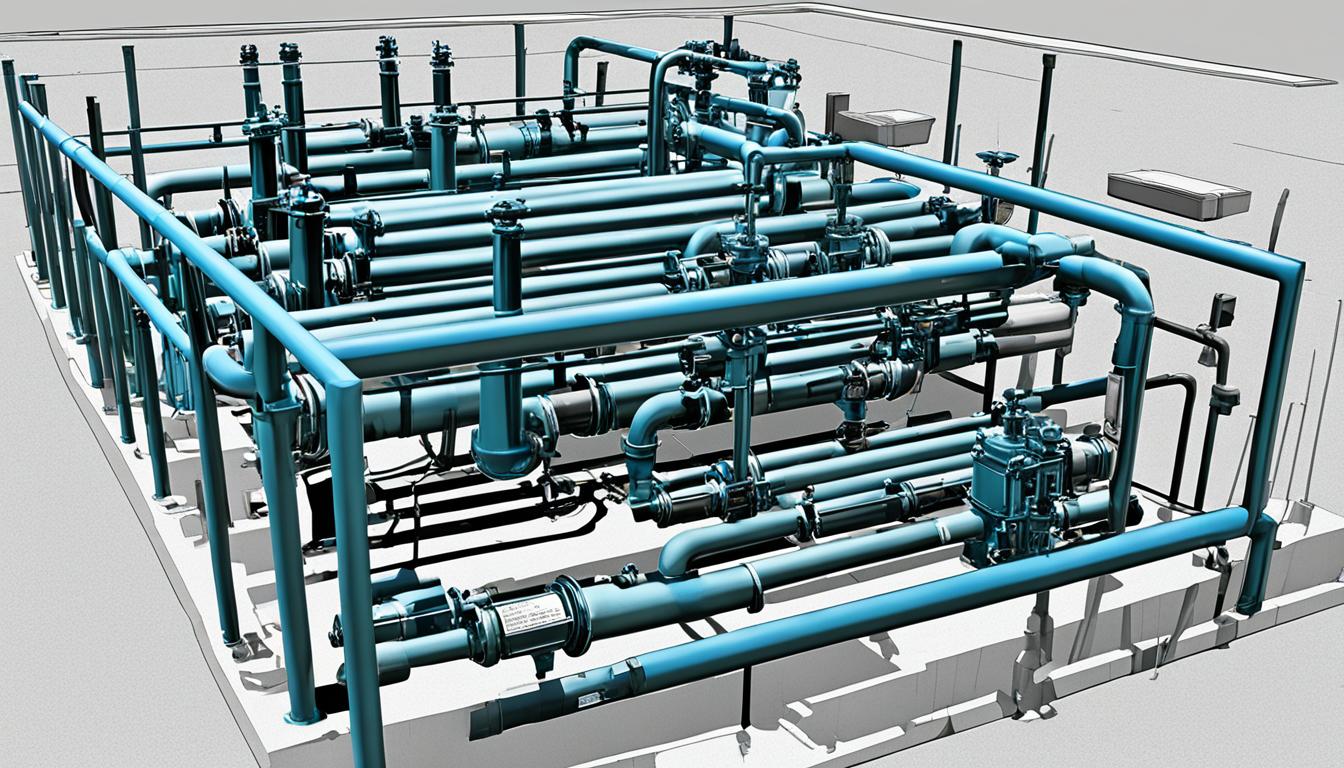This post contains affiliate links.
Did you know that installing a water pump for a consistent and dependable water supply requires navigating a web of regulations and permits? It’s true!
Water pump installations are subject to well pump regulations and permits to prioritize safety, protect the environment, promote public health, and conserve water resources. Understanding the types of permits required and how to navigate the process is essential for a successful installation.
Key Takeaways:
- Installing a water pump requires navigating well pump regulations and permits.
- Well pump regulations prioritize safety, protect the environment, and conserve water resources.
- Understanding the types of permits required is essential for a successful installation.
- Researching local regulations and seeking professional assistance can help navigate the permit process.
- Well driller and pump installer licensing may be necessary in certain states.
The Importance of Permits and Regulations
Permits and regulations play a crucial role in water pump installations, ensuring safety, protecting the environment, promoting public health, and conserving valuable water resources. Compliance with these permits and regulations is essential to achieve a successful and responsible installation.
When it comes to water pump installation permits, safety is paramount. Adhering to specific safety standards and requirements helps prevent accidents during the installation process, safeguarding both the individuals involved and the surrounding environment.
Protecting the environment is another significant aspect of water pump regulations. These regulations minimize the negative impact of extracting water from natural sources, ensuring that rivers, lakes, and aquifers remain healthy and productive. By adopting environmentally-friendly practices and enforcing strict guidelines, we can conserve these valuable resources for future generations.
Public health is also a top priority in water pump installations. With the help of permits and regulations, we can ensure that the water supply from these pumps is safe for consumption. Implementing proper filtration, disinfection, and monitoring processes will prevent any potential health risks, giving individuals peace of mind when using water from their pumps.
Lastly, water pump permits and regulations are essential for resource conservation. Over-extraction of water can lead to water scarcity, affecting communities and ecosystems alike. By imposing limits on water extraction, implementing efficient practices, and encouraging responsible water management, permits and regulations contribute to the preservation and sustainability of our water resources.
Image:
Types of Permits and Regulations
When it comes to water pump installations, there are several types of permits and regulations that you need to be aware of. These permits and regulations ensure that the installation is done safely, in compliance with environmental standards, and in accordance with local zoning requirements. Let’s take a closer look at each type:
Building Permits
Building permits are necessary when constructing pump houses or any other structures related to your water pump installation. These permits ensure that the construction meets safety codes and regulations.
Environmental Permits
Environmental permits are essential to safeguard the aquifer and surrounding environment during the drilling and pump installation process. These permits ensure that the installation does not cause harm to the environment and complies with environmental protection guidelines.
Electrical Permits
Electrical permits are required to ensure that the wiring and electrical components of your water pump meet safety standards. These permits guarantee the safe operation of your water pump system and reduce the risk of electrical hazards.
Water Rights Permits
Water rights permits establish your right to use a specific water source for your pump installation. These permits are necessary to ensure that you have legal access to the water resource and comply with water rights regulations.
Zoning Permits
Zoning permits may dictate the location and placement of your water pump installation on your property. These permits ensure that the installation adheres to local zoning regulations and does not violate any land use restrictions.
| Permit Type | Description |
|---|---|
| Building Permits | Required for constructing pump houses or related structures |
| Environmental Permits | Ensure drilling and pump installation do not harm the environment |
| Electrical Permits | Ensure electrical components meet safety standards |
| Water Rights Permits | Establish legal access to a specific water source |
| Zoning Permits | Determine location and placement of the water pump installation |
By understanding the different types of permits and regulations associated with water pump installations, you can navigate the process more effectively, ensure compliance, and enjoy a reliable and efficient water supply for your property.
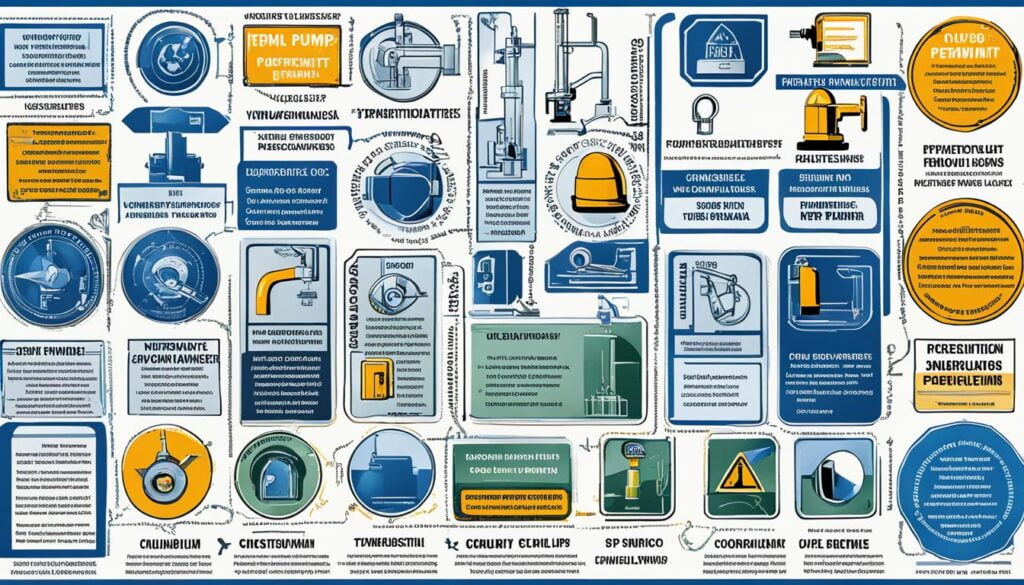
Navigating the Permit Process
Navigating the permit process for water pump installations can be manageable with the right approach. Begin by researching local regulations and requirements through your local municipal or county offices. It’s essential to understand the specific guidelines and approvals needed to ensure compliance with the law.
Researching regulations serves as the foundation for a successful permit process. Familiarize yourself with the permitting requirements and any documentation needed for approval. Take note of deadlines and fees associated with the application process, ensuring you have all the necessary information before proceeding.
While researching regulations is crucial, seeking professional assistance can also simplify the permit process. Consider engaging with a licensed well driller or pump installer who has experience in navigating the permit system. They can provide valuable guidance and help you streamline the application process, ensuring that all regulations are met.
When completing permit applications, accuracy is key. Double-check all forms, ensuring that they are filled out correctly and legibly. Missing or incorrect information can lead to delays or rejections. Additionally, be prepared to provide any requested documentation, such as site plans, supporting documentation, or proof of compliance with specific regulations.
Engaging with regulatory authorities throughout the process is beneficial. If you have questions or need clarification on any aspect of the permit requirements, don’t hesitate to reach out to the appropriate authority. Building a rapport with regulatory authorities can foster open communication, creating a smoother permit process overall.
Remember, navigating the permit process for water pump installations requires attention to detail and adherence to regulations. By researching the requirements, seeking professional assistance, completing permit applications accurately, and engaging with regulatory authorities, you can ensure a successful and compliant installation.
Well Driller and Pump Installer Licensing
In certain states, individuals who wish to become well drillers or pump installers must acquire the necessary licenses. This licensing process typically entails passing certification exams and fulfilling experience requirements. The types of licenses available may vary, but commonly include:
| License Type | Description |
|---|---|
| Master Well Driller | Qualified to perform all types of well drilling and pump installations with extensive experience and expertise. |
| Journeyman Well Driller | Authorized to conduct well drilling and pump installation under the guidance of a master well driller. |
| Environmental Resource & Geotechnical Well Driller | Specialized license for drilling wells in environmentally sensitive areas and geological exploration purposes. |
| Dewatering Well Driller | Permitted to drill wells solely for the purpose of removing excess groundwater. |
| Vertical Closed Loop Geothermal Well Driller | Licensed to drill wells specifically for geothermal heating and cooling systems. |
| Elevator Borehole Well Driller | Authorized to drill wells specifically for elevator systems to maintain water pressure. |
| Pump Installer | Qualified to install and service various types of water pumps. |
To acquire these licenses, individuals must pass certification exams that demonstrate their knowledge and understanding of well drilling and pump installation practices. Additionally, they must fulfill experience requirements that vary depending on the state or licensing authority. These licenses are crucial for ensuring the competence and professionalism of well drillers and pump installers, providing assurance to clients and regulatory bodies.
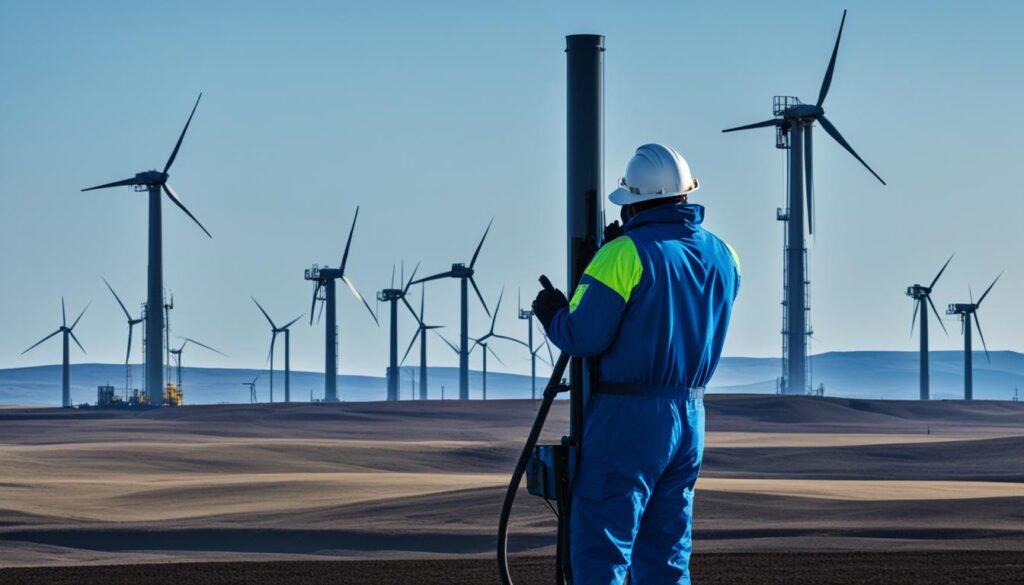
Continuing Education and Permit Renewal
Continuing education requirements are a crucial aspect of maintaining your licenses as a well driller or pump installer. To ensure license renewal, many states require you to obtain a certain number of continuing education points (CEPs) within a specified timeframe. By acquiring both technical/industry CEPs and safety CEPs, you can stay up to date with the latest industry trends and safety practices. It is essential to plan ahead and obtain the necessary CEPs well in advance of your license expiration date to ensure compliance. Failure to meet continuing education requirements may result in license suspension or non-renewal.
Types of Continuing Education
Continuing education for well drillers and pump installers encompasses various topics and skills. Below are some examples:
- Technical/Industry CEPs: These courses focus on the latest advances in well drilling technology, installation techniques, pump maintenance, and industry best practices.
- Safety CEPs: Safety courses cover topics such as hazard recognition, personal protective equipment (PPE), emergency response, and confined space entry.
Earning a combination of technical/industry and safety CEPs ensures that you are well-rounded in your knowledge and skills, both in terms of industry advancements and safety protocols.
Continuing education allows well drillers and pump installers to stay informed about new technologies and techniques, ensuring the highest level of service and safety for their clients.
Renewal Process and License Expiration
When it comes time to renew your well driller or pump installer license, be sure to check the specific requirements set by your state licensing board. In addition to completing the required number of CEPs, you may need to submit a renewal application, pay a fee, and provide any necessary documentation. Failure to renew your license before the expiration date could result in a lapse in licensure, which may prohibit you from legally performing well drilling or pump installation activities.
Remember, staying current with your continuing education requirements and renewing your license on time demonstrates your commitment to professionalism and ensures that you are up to date with the latest techniques and safety standards in the industry.
Continuing Education Providers
To fulfill your continuing education requirements, consider the following providers:
| Provider | Contact Information |
|---|---|
| Well Drilling Association | www.welldrillingassociation.com |
| Pump Installer Academy | www.pumpinstalleracademy.com |
| Industry Certification Institute | www.certificationinstitute.com |

Permitting and Licensing in Missouri
In Missouri, if you’re planning to install a water pump, heat pump, or monitoring well, it’s important to obtain the necessary permits and licenses to ensure compliance with regulations. Missouri offers both restricted and non-restricted contractor permits based on the type of well and pump installation work you will be performing.
To become a contractor in Missouri, you’ll need to complete an apprenticeship program, pass the required certification exams, and pay the applicable fees. This process ensures that individuals have the necessary knowledge and skills to carry out well and pump installations safely and effectively.
Permits and licenses for well and pump installations typically need to be renewed on an annual basis. This renewal process ensures that contractors stay up to date with any changes in regulations and continue to meet the necessary requirements for conducting their work.
If you’re unsure about the specific permit types or the application process, it’s recommended to reach out to your local regulatory authorities for guidance and assistance. They can provide you with the necessary information and ensure that you’re following the correct procedures.
Testing fees may also apply during the permitting process. These fees cover the costs associated with inspecting and testing the well and pump installation to ensure compliance with safety and quality standards.
Permitting and Licensing in Missouri: An Overview
- Permit and License Types: Restricted and non-restricted contractor permits
- Application Process: Complete apprenticeship program, pass certification exams, and pay fees
- Renewal Requirements: Annual renewal of permits and licenses
- Testing Fees: Associated costs for inspection and testing
By following the proper permitting and licensing procedures in Missouri, you can ensure that your well and pump installations meet regulatory standards and contribute to the safe and sustainable use of water resources in the state.
Fee Structure and Forms
When it comes to well pump installations in Missouri, understanding the fee structure is essential to ensure compliance and a smooth process. Let’s take a closer look at the various fees and forms associated with certifications, permits, and testing.
Certification Fees
If you’re seeking a certification for heat pump, monitoring well, or water well installation, it’s important to note that certification fees may vary depending on the type of certification. These fees contribute to the evaluation and processing of your certification application.
Permit Fees
Permit fees are a necessary component of obtaining the required permits for your well pump installation. Different permit types, such as heat pump, monitoring well, mineral test hole, pump, and water well permits, have their own associated fees. These fees cover the administrative costs of reviewing and approving your permit application.
Late Fees
It’s crucial to adhere to the specified timelines for certifications and permits. Overdue certifications and permits may be subject to late fees. Late fees encourage timely compliance and help ensure that the necessary documentation and approvals are obtained promptly.
Testing Fees
Testing fees apply to all types of tests and retakes throughout the well pump installation process. These fees cover the cost of the tests administered to assess the functionality, efficiency, and safety of your water pump system.
Well Certification and Registration Forms
Completing well certification and registration forms is a crucial step in the well pump installation process. These forms capture important information about your well, ensuring compliance with regulations and facilitating documentation. By providing accurate and complete information on these forms, you contribute to a comprehensive understanding of your well pump system.
Fee Structure and Forms Summary
| Fee Type | Description |
|---|---|
| Certification Fees | Vary depending on the type of certification |
| Permit Fees | Required for various permit types |
| Late Fees | Assessed for overdue certifications and permits |
| Testing Fees | Apply to all types of tests and retakes |
| Well Certification and Registration Forms | Crucial for capturing well information and ensuring compliance |
Remember, understanding the fee structure and diligently completing the necessary forms are key steps to successfully navigating the well pump installation process in Missouri.
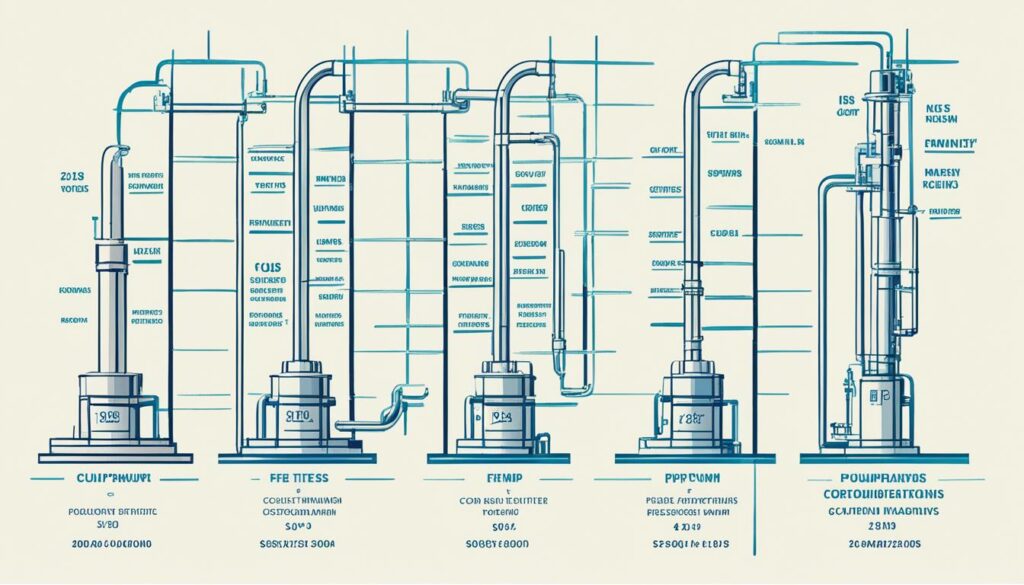
Tools and Publications
When it comes to well pump installations in Missouri, utilizing the right tools and accessing relevant publications can greatly assist contractors and ensure a successful project. Missouri offers a comprehensive Well Information Management System that serves as a valuable resource for contractors and citizens alike. This user-friendly platform allows you to access permit information, submit records, search for contractors, and view well records, all in one centralized location.
In addition to the Well Information Management System, Missouri provides other essential tools to support well pump installations. One such tool is the Well Installation Section Drilling Information Map, which offers interactive maps that showcase well construction requirements and provide crucial information about the drilling process. These maps can guide contractors in complying with regulations and ensuring proper well installation.
Water tracing is another critical aspect of well pump installations, and Missouri offers a dedicated Water Tracing Laboratory to assist contractors. This laboratory provides water tracing services, helping contractors track the movement and quality of water within the well system. This information is invaluable for diagnosing issues, ensuring water quality, and optimizing the functionality of the pump system.
Missouri also provides various forms that contractors can utilize throughout the different stages of well pump installations. These forms are tailored to specific purposes and expedite the documentation process, ensuring compliance with regulatory requirements. Whether it’s permit applications, well certification forms, or other necessary paperwork, these forms streamline the administrative aspects of the project.
Furthermore, Missouri offers a range of publications that delve into various aspects of well pump installations. These publications cover topics such as disinfecting water wells, well drilling wastewater management, and other important considerations. Contractors and individuals involved in well pump installations can benefit from these publications by gaining valuable insights, understanding best practices, and staying updated on industry standards.
Overall, utilizing the Well Information Management System, well installation maps, water tracing services, forms, and publications provided by Missouri is crucial for ensuring smooth and compliant well pump installations. These resources empower contractors with the knowledge and tools necessary to navigate the process efficiently and effectively.
Conclusion
Successfully navigating the world of well pump regulations and permits is essential for a safe and compliant water pump installation. By understanding the different types of permits required and conducting thorough research on local regulations, you can ensure that your water pump system meets all necessary requirements.
Seeking professional assistance from licensed well drillers or pump installers can provide valuable guidance and support throughout the permit process. Their expertise can help you complete permit applications accurately and provide any required documentation.
By taking the necessary steps to comply with regulations and obtain the required permits, you can enjoy the benefits of a well-functioning water pump system while simultaneously safeguarding the environment, promoting public health, and conserving valuable water resources for future generations.
FAQ
Why are permits and regulations important for water pump installations?
Permits and regulations ensure safety, protect the environment, prioritize public health, and conserve water resources.
What types of permits and regulations may be required for water pump installations?
The types of permits and regulations include building permits, environmental permits, electrical permits, water rights permits, and zoning permits.
How can I navigate the permit process for water pump installations?
Research local regulations, seek professional assistance, complete permit applications accurately, and engage with regulatory authorities for clarification and assistance.
Do well drillers and pump installers require licensing?
Yes, in certain states, well drillers and pump installers need to obtain licenses by passing certification exams and meeting experience requirements.
What is continuing education and why is it important for well drillers and pump installers?
Continuing education involves obtaining a certain number of points within a specified time period and is important for license renewal.
What are the requirements for well pump permitting and licensing in Missouri?
In Missouri, individuals need to obtain the necessary licenses/permits and complete apprenticeship programs, pass certification exams, and pay applicable fees.
What is the fee structure for certifications, permits, and testing in Missouri?
Missouri has a fee structure in place for certifications, permits, and testing, including certification fees, permit fees, late fees, and testing fees.
What tools and resources are available for well pump installations in Missouri?
Missouri offers a Well Information Management System, Well Installation Section Drilling Information Map, water tracing services, forms, and publications.
Source Links
- https://dtoswater.com/water-pump-installation-permits-and-regulations/
- https://www.nj.gov/dep/watersupply/g_boards_le.html
- https://dnr.mo.gov/water/business-industry-other-entities/permits-certification-engineering-fees/wells-drilling/well-pump-installation-contractor-permitting
This post contains affiliate links.
